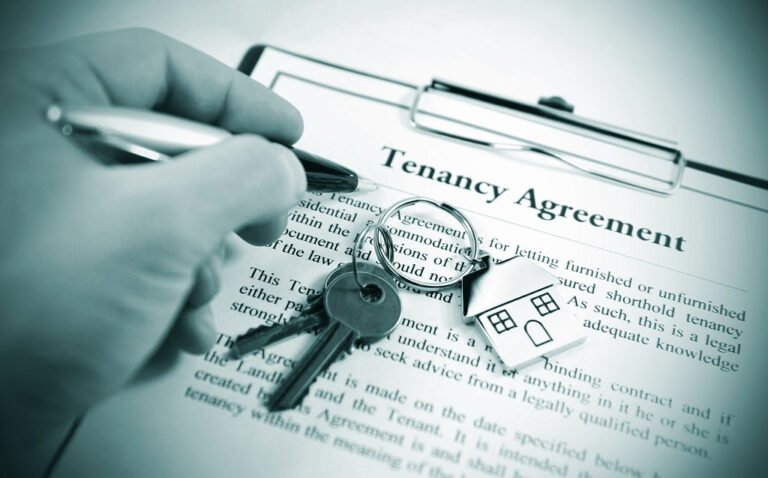Successful tenancies are often about the quality of the relationship between a landlord and their tenants.
Landlords
are always looking for good quality tenants – and the best way to stand out to a landlord is to show you have those qualities.
The qualities of a good tenant might include:
- Having a healthy credit history
- Having a stable income and good employment
- Honesty
- Good communication skills
- A good track record of previous renting
- Flexibility and a willingness to be accommodating
What makes someone a good tenant?
1. Have your paperwork ready and ask good questions
First impressions really count when you meet a landlord, or their letting agent, for the first time.
So, show them that you’re organised and trustworthy by having all the paperwork required for them to assess you and complete your tenancy application.
Ask questions, too.
For example, find out when the bins are collected and how you can recycle your waste – this will show your landlord that you’re considerate and want to stick to your obligations.
2. Pay your rent on time, every time
The one thing all landlords expect from their tenants is for them to pay their rent in full and on time every month.
If you’re unable to pay your rent, always speak to your landlord or letting agent as early as you can and explain the situation.
Good communication is a key ingredient of a healthy landlord and tenant relationship, and your landlord is far more likely to be understanding if you speak to them openly about why you’re unable to pay.
3. Look after the property and treat it like your own
By taking pride in your rental property and treating it as if were your own, you’ll give yourself the best chance of receiving your deposit back in full.
On top of that, you’re also more likely to get a great reference from your landlord when you move on – getting your relationship with your next landlord off to the best possible start.
4. Communicate maintenance issues quickly and clearly
Good tenants will always notify their landlord or letting agent of maintenance problems right away.
Even if it’s a small problem, telling your landlord immediately can stop it becoming a bigger issue further into your tenancy.
5. Stick to the terms of your tenancy agreement
When you sign a tenancy agreement, you’re saying that you will abide by the terms for the fixed time of your tenancy.
So, always read the tenancy agreement in full before you sign it and raise anything you don’t understand.
By understanding your obligations, you’ll be less likely to breach any of the tenancy agreement terms and cause friction with your landlord.
6. Be honest from day one
When you really like a rental property, it’s likely there will be other renters who like it, too.
That’s when it can be tempting to twist the truth about your financial situation or your rental history to be a landlord’s top choice.
Honesty is a key attribute in any good tenant and most half-truths or lies will be exposed – especially those to do with finances, as your letting agent will undertake referencing and financial checks to establish if what you’ve said on your application is correct.
7. Keep the property clean throughout the tenancy
Cleanliness, or lack of it, is one of the most common reasons for landlords deducting money from tenancy deposits.
Good tenants will keep their rental property clean throughout their fixed term tenancy – rather than frantically trying to clean it just before they move out.
When you move in, make a note about the condition of the property, and always leave it in the same condition as you found it when it’s time to move out.
Your landlord or letting agent will almost certainly inspect the property periodically, too, so keeping it clean on a weekly basis will ensure they’re kept happy throughout your agreement.
8. Be understanding about your landlord’s needs
You have needs as a tenant and can rightly expect your landlord to be considerate towards them.
But the landlord and tenant relationship is a two-way street – so you should also be mindful of your landlord’s needs, too.
For example, not paying your rent on time could have a hugely detrimental effect on your landlord’s cashflow or financial circumstances.
It’s likely they’ll have a mortgage to pay on the property you’re renting and by not paying on time, you could be putting them at risk of a black mark on their credit history.
9. If you’re unsure, ask your landlord or letting agent
All your obligations and details of what you can and can’t do when living in your rental property should be outlined in your tenancy agreement.
But if you’re unsure, always ask your landlord or letting agent.
For example, if you want to keep a pet in your rental home, don’t just move one in without being certain it’s something you’re allowed to do.
Or if you want to change a light fitting, or paint a room, and you’re unsure if you’re allowed, ask before you do anything.
Even if you have a good rapport with your landlord or letting agent, don’t simply assume they’ll be fine with what you want to do.
By going behind their back, you’ll lose trust, which is key to any rental relationship.







